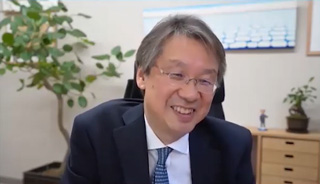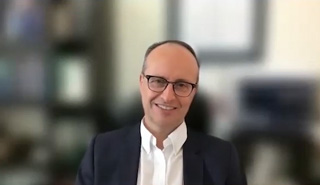Messages
Leadership Dialogue Series: Interview with Professor Lars French, President of ILDS (4/4)
 In Japan, we are facing a big issue of declining numbers of physician-scientists. How is the situation in Germany and Europe, and how do you think we should tackle this issue?
In Japan, we are facing a big issue of declining numbers of physician-scientists. How is the situation in Germany and Europe, and how do you think we should tackle this issue?
This is a worldwide problem. Working hours are growing shorter, but the amount of clinical work is not reducing. Physicians have to do the same job with less time, with the consequence of having less time for teaching and research. The way forward is for institutions and governments to create extended programs for ensuring adequate protected time, such that clinicians can be financed and thus freed from clinical duties in favor of research-time. Additional grant systems that enable young and motivated individuals to do research are also needed. As chairpersons, it is our job to show the younger generations how wonderful it can be to do research and clinical work together. The Swiss National Science Foundation, for example, has developed good mechanisms to foster clinician-scientists, but they’re limited and very competitive. When I was Chairman of Dermatology at the University of Zurich/Switzerland, we launched a program with a private charitable foundation to foster clinician-scientist careers, in which up to three years of financing to do 80% research and 20% clinical work could be applied for. National institutions should strive towards increasingly providing such support. In Germany, there are also national, regional, and university programs that can provides protected time.
There is also the issue of the considerable difference in salary that exists between private practice/industry, and the clinician scientist job in an academic sector. There is also danger in our field that there will be fewer and fewer dermatologists willing to use complex systemic treatments. This requires more time and costs more money per patient, but severe patients require competent dermatologists willing to treat them with complex systemic therapies.
If young residents or researchers in Germany want to work beyond the 42-hour workweek limit for their own improvement or curiosity, can they stay in the lab and do this?
In Germany we are required to accurately monitor the total overtime hours, and it can be quite strict. Sometimes doctors need to take mandatory holidays to reduce accumulated overtime hours. However, many of them are motivated to come back to the lab after they check out from their clinical duties so as to do research in the evening, and some will also come in on the weekends to do research. They are obviously free to do this, or do research at home, but it is more difficult and regulated than they used to be.
This is a big challenge, and we need to think and work together to address the issue. Lastly, ISID will be held in Tokyo in 2023. What is your expectation for this event, and do you have any message to JDA members?
I am confident it will be a fantastic meeting. The International Investigative Dermatology (IID 2008) in Kyoto was one of the best meetings I have attended. Japanese are wonderful hosts, and there are many great clinician scientists and basic scientists in Japan. I am confident the ISID 2023 will be a fantastic Congress where dermatological scientists and clinicians from around the world will be excited to attend.
When we are chairpersons or clinicians also doing science, we do not have much time to think outside the box is very precious. Attending such meetings gives us space to think, and also a chance to discuss with colleague scientists and clinician-scientists of all generations. It is some of the most creative time in a career. I always come back from such meetings with many ideas for my own research or collaborations.
We will be sure to provide the Omotenashi (hospitality) that Japan is known for.
I can attest to that. Attending a Congress in Japan is a must-have experience.
We really appreciate your time and insightful words to JDA members! Being a dermatologist is very special.
 I agree, we have a wonderful specialty. We can have an impact on how we treat patients in the future by doing clinically oriented research. We are very happy to have JDA as a member, and look forward to further collaboration. Thank you very much.
I agree, we have a wonderful specialty. We can have an impact on how we treat patients in the future by doing clinically oriented research. We are very happy to have JDA as a member, and look forward to further collaboration. Thank you very much.
Thank you!

